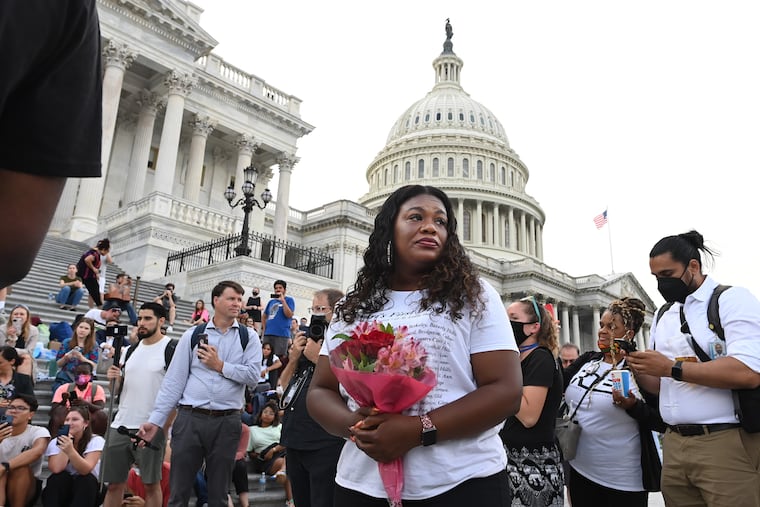As someone who has been evicted, I want Congress to fully fund housing | Opinion
To create affordable housing, we must call on our members of Congress to support the budget resolution.

How many members of Congress have been evicted by a landlord and forced to seek emergency shelter for themselves and their children?
I have faced this situation, and I am one of the millions of Americans who has been evicted by a landlord and sought refuge at a homeless shelter for myself and my children. At the time, my children and I were living with a relative. I had two young children and needed a safe place to live and look for a job. Unbeknownst to me, my relative could not pay the bills and the landlord evicted all of us. I have also faced eviction two other times in my life. Trust me when I say that on some days, working full time, going to college, and raising my children seemed nearly impossible. But I made it, and I know the struggles that so many are facing right now. Now I am a homeowner and work for an organization that is dedicated to helping people like me afford their very own homes.
Before our nation was devastated by the COVID-19 pandemic, Eviction Lab’s data show a typical year seeing landlords file 3.7 million eviction cases, resulting in nearly one million Americans being evicted. Here in Pennsylvania, there were more than 116,500 eviction filings in 2019, consistent with prior years’ eviction filings.
» READ MORE: Cori Bush’s eviction victory reminds Dem establishment why it can’t win without progressives | Will Bunch
As our nation continues to grapple with the ramifications of the pandemic, housing remains an issue. President Joe Biden extended the eviction moratorium for areas with high COVID-19 transmission until Oct. 3, but that doesn’t change that when the moratorium ends, we expect there will be a spike in evictions, destabilizing tenants, landlords, communities, and workplaces. The threat of eviction and lack of affordable housing has left the lives of millions of Americans hanging in the balance. But members of our congressional delegation can help change the trajectory of their lives.
The Senate Budget Committee released their budget resolution on Aug. 9. Under the resolution, the Senate Committee on Banking, Housing, and Urban Affairs receives a topline spending figure of $332 billion. The upcoming budget presents an opportunity for legislators to address our country’s desperate housing needs while disrupting the vicious cycle of eviction and poverty. We need our members of Congress to ensure that the next federal budget includes robust funding for rental assistance to increase the number of eligible households able to receive the housing subsidy, $70 billion to preserve public housing and $45 billion to build new affordable housing units through the National Housing Trust Fund.
» READ MORE: Evicted without warning, again: As lockouts resume, tenants are left scrambling for homes | Editorial
Experts estimate there are approximately 43 million Americans who rent, and the average renter needs an annual income of nearly $50,000 or must make $23.96 an hour to afford a modest, two-bedroom apartment. This is far above the incomes of many working families, senior citizens, and those with disabilities. That is why the legislation should include a provision to expand rental assistance programs to every eligible household. Our elected officials acted swiftly at the start of the pandemic to prevent millions of Americans from being evicted, but we must ensure that these safety-net initiatives remain in place. Only one in four eligible households receives rental assistance. We should not live in a society where individuals who work or are disabled are unable to access affordable housing.
When individuals have access to stable housing, they are healthier, able to maintain jobs, and can focus on the educational and personal needs of themselves and their children. Many of our elected officials may never know what it’s like to face eviction or lack access to affordable housing, but they represent us — all of us. Now is the time for them to take bold and decisive action and create a future where the federal government’s investments in housing are grounded in the ideals of equity, equality, and affordability. We must call on our members of Congress to support the budget resolution. A vote in favor of the resolution is a vote for protecting and improving our country’s housing infrastructure as well as the well-being of individuals and families.
Keena Minifield is the policy and civic engagement associate for the Housing Alliance of Pennsylvania.